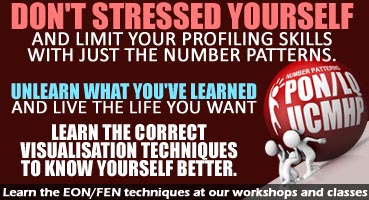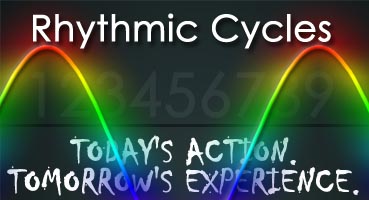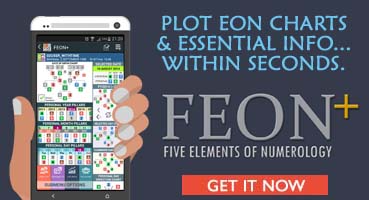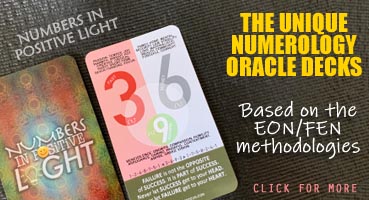On DISC and EON

Sometime back, somebody asked me about DISC profiling method and whether we can incorporate that into the Elements of Numbers (EON) methodology.
First, the DISC method is based on the four working styles or preferences – Dominance, Influence, Steadiness, and Compliance. It allows anyone to appreciate how people respond to situations in their various ways, how it could drain their energy when beliefs and conflicts occurred. Each of the four DISC components has their strong points and limitations – understanding them helps you to work better with each style. These provide insights on ways to influence, persuade, and intercommunicate with other people with various styles.
 As stated in my book “Elements of Numbers: Fast and Easy Character Profiling,” the DISC method is good, which is why it is widely accepted by many people, particularly those working as Human Resource (HR) professionals. Still, it has one limitation that’s similar to many popular Western profiling systems – the use of multiple-choice questionnaires (MCQ) to allow a person to determine their DISC style, and how they can balance their behaviours with their least preferred style. The problem lies with the truthfulness of the person answering the questions, rather than the DISC methodology. Hence, it’s not a limitation of the DISC method per se, but instead, the use of multiple-choice questionnaires that depends on the reliability, consistency, and validity of the “input” component contributing to the application effectiveness of the DISC method – the human factor, the person doing the test.
As stated in my book “Elements of Numbers: Fast and Easy Character Profiling,” the DISC method is good, which is why it is widely accepted by many people, particularly those working as Human Resource (HR) professionals. Still, it has one limitation that’s similar to many popular Western profiling systems – the use of multiple-choice questionnaires (MCQ) to allow a person to determine their DISC style, and how they can balance their behaviours with their least preferred style. The problem lies with the truthfulness of the person answering the questions, rather than the DISC methodology. Hence, it’s not a limitation of the DISC method per se, but instead, the use of multiple-choice questionnaires that depends on the reliability, consistency, and validity of the “input” component contributing to the application effectiveness of the DISC method – the human factor, the person doing the test.
 More often than not, a person may assume their behaviours and manners are attuned to the specific choice provided in the question, and this behavioural assumption might not be exactly what they have acted or demonstrated in real-life to others. For instance, some people may assume they are really good listeners, but actually demonstrated the “listen to reply, and not listen to understand” habits. Sure, they are good listeners as they don’t disrupt the conversations and wait until the other person finished their sentence. However, they hastily started to respond, often in denial ways, to reinforce what they had wanted to say. Because they did not “listen to understand” what the other individual is saying, conflicts occur due to the lack of understanding and empathy toward others.
More often than not, a person may assume their behaviours and manners are attuned to the specific choice provided in the question, and this behavioural assumption might not be exactly what they have acted or demonstrated in real-life to others. For instance, some people may assume they are really good listeners, but actually demonstrated the “listen to reply, and not listen to understand” habits. Sure, they are good listeners as they don’t disrupt the conversations and wait until the other person finished their sentence. However, they hastily started to respond, often in denial ways, to reinforce what they had wanted to say. Because they did not “listen to understand” what the other individual is saying, conflicts occur due to the lack of understanding and empathy toward others.
Personally, I feel it is useful to learn the DISC method and the four behavioural styles, to understands the other person better, and applied amicable ways to produce effective communication. It’s similar to the Transaction Analysis (TA) methods that I’ve identified in other articles, and included that in my FEN WORKSHOP courses as well. That’s where you learn about the Parent-Adult-Child ego states, understand its strengths and limitations, and apply ways to create an Adult-Adult ego state for more beneficial communication and collaborations.
 In the Elements of Numbers (EON) method, there are nine numbers ranging from 1 to 9. Each number has either a Yin or Yang attributes. From extended EON methods, each number has both a Yin and Yang attributes actually. By factoring the DISC relevance, this implies a person assumes to have strong DOMINANCE, need not necessarily be having the characteristics of number 3 or 8, both are of the FIRE elements. This is because, in extended EON method, and as explained earlier that each number has both Yin and Yang attributes, this means all numbers (1-9) has signs of both positive and negative DOMINANCE behavioural styles.
In the Elements of Numbers (EON) method, there are nine numbers ranging from 1 to 9. Each number has either a Yin or Yang attributes. From extended EON methods, each number has both a Yin and Yang attributes actually. By factoring the DISC relevance, this implies a person assumes to have strong DOMINANCE, need not necessarily be having the characteristics of number 3 or 8, both are of the FIRE elements. This is because, in extended EON method, and as explained earlier that each number has both Yin and Yang attributes, this means all numbers (1-9) has signs of both positive and negative DOMINANCE behavioural styles.
Hence, it is wise and practical not to mix both DISC and EON methods together for every case-study profiling analysis, and tries to identify which EON number belongs to which DISC behavioural styles, without first understanding its fundamental correlations. There are different ways to apply to balance the energies around. That is to say, there is no ONE WAY in suggesting a person is simply influenced by the periodic energies around. Otherwise, it could create more confusion and narrowed views limiting your profiling perspectives. Instead, we can always use them as complementary methods to further enhance our profiling analysis.
 One technique that you can perform is to factor all four DISC behavioural styles in each of the EON numbers. That’s when you’ve identified the dominant forces of the individual based on their EON birth chart. I’ve offered lessons in my FEN (Five Elements Numerology) WORKSHOP classes to identify the dominant strengths by checking on the Numerical Energies method – the primary and secondary forces, and the dominant and recessive numbers.
One technique that you can perform is to factor all four DISC behavioural styles in each of the EON numbers. That’s when you’ve identified the dominant forces of the individual based on their EON birth chart. I’ve offered lessons in my FEN (Five Elements Numerology) WORKSHOP classes to identify the dominant strengths by checking on the Numerical Energies method – the primary and secondary forces, and the dominant and recessive numbers.
If the number 2 is one of the dominant numbers, you can simply correlate the effects of the person by linking up the energies that influence the person to exhibit the positive and negative “Dominance, Influence, Steadiness, and Compliance” behaviour styles. For instance, a negative “Dominance” number 2, could be like overflowing water through a damaged dam – strongly instigating others with one-sided opinions, “flooding” or brainwashing; and taking charge or command others regardless. The negative “Influencing” number 2 would be like many typical politicians – influencing their supporters through monetary gimmicks, like giving “spiked” drinks, manipulating their feelings and opinions, releasing unsubstantiated reports or survey stats, manipulating half-truths, and creating fears of uncertainties.
Look at the screenshot of Donald Trump’s Chart – he has few dominant numbers, and one of them is the number 2. You can then correlate the negative and positive “Steadiness” and “Compliance” behaviours to the number 2, to complete the profiling observations. From a Transactional Analysis (TA) perspective, Donald’s “often-seen, disruptive” behaviours and actions are similar to a person demonstrating the critical-parent and rebellious-child ego states.
 The DISC method currently provides behavioural profiling based on a person’s answers to the questions. This will not conclude the individual’s work or personal attitudes and behaviours forever – the people/task orientations, the slow/fast pace, how their emotions are managed, and how their assertion is expressed. That is why your DISC report done some months or years back, might be different from the DISC report done tomorrow. Reason – you are now not who you were previously, because you changed. Furthermore, DISC profiling is based on the inner-self’s perspective, the conscious mind that influenced the thoughts, behaviours and actions.
The DISC method currently provides behavioural profiling based on a person’s answers to the questions. This will not conclude the individual’s work or personal attitudes and behaviours forever – the people/task orientations, the slow/fast pace, how their emotions are managed, and how their assertion is expressed. That is why your DISC report done some months or years back, might be different from the DISC report done tomorrow. Reason – you are now not who you were previously, because you changed. Furthermore, DISC profiling is based on the inner-self’s perspective, the conscious mind that influenced the thoughts, behaviours and actions.
The EON/FEN method provides an inner and outer perspective of the energies influencing a person, through the EON Birth Chart, and the Periodic charts. In a way, it’s like aligning the inner-energies influencing the conscious mind, and the outer-energies influencing the unconscious mind. Your current behaviours is an act of your unconscious state of mind filtering information – through deleting, distorting, and generalising – before passing to your conscious mind, to react or response to situations.
To be a better human behavioural and numerology profiling practitioner, you need to open your minds and identify complementary methods (like DISC, TA, NLP) that could offer additional insights to empower you to reframe your thinking perspectives and beliefs.
Regards, Ron WZ Sun














